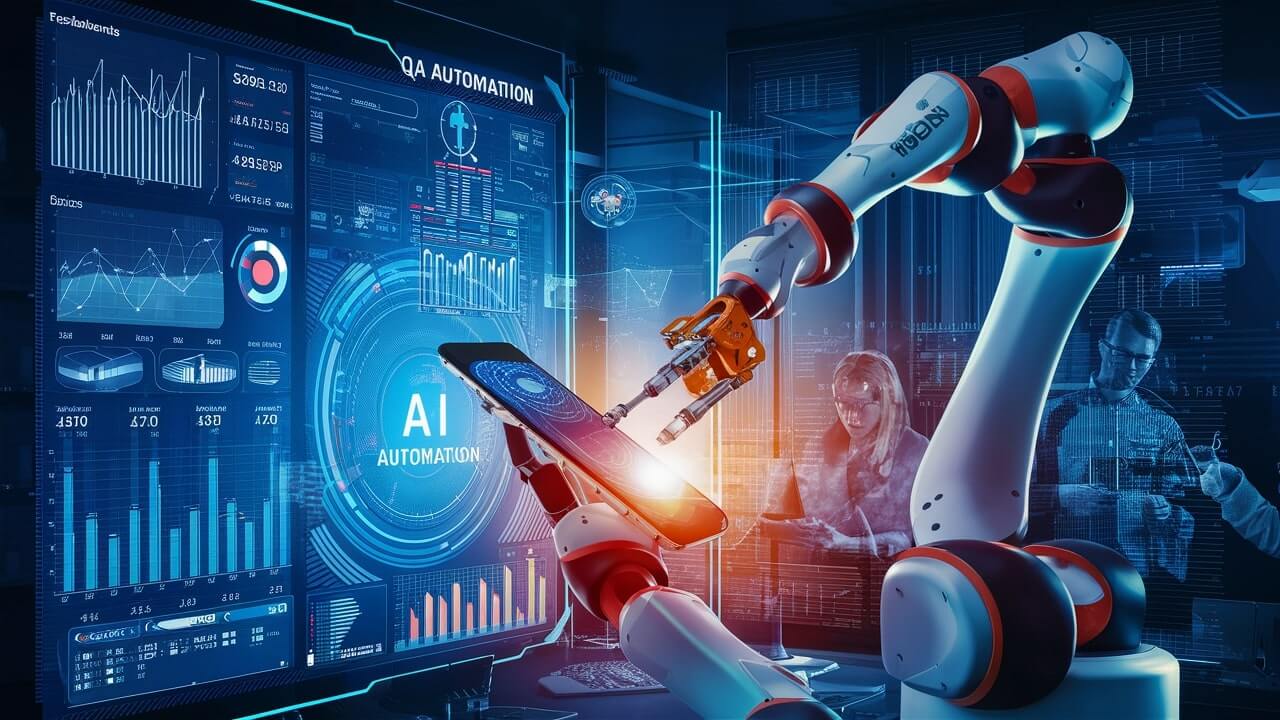In the rapidly evolving world of technology, AI in system integration testing is becoming a game-changer. As businesses strive for seamless operations and impeccable quality, the role of AI in enhancing system integration testing is more crucial than ever. This article explores the profound impact of AI on system integration testing, providing insights into its benefits, challenges, and future prospects.

The Importance of System Integration Testing
System integration testing is a critical phase in the software development lifecycle. It ensures that various components of a system work harmoniously together. This type of testing validates the interactions between different modules, identifying defects that might arise when components are integrated. As systems become more complex, the need for effective integration testing grows exponentially.
Challenges in Traditional System Integration Testing
Traditional system integration testing faces numerous challenges. The complexity of modern systems, time constraints, and the potential for human error can hinder the effectiveness of testing. Manual testing is time-consuming and often fails to cover all possible scenarios. This is where AI steps in, offering solutions to these longstanding challenges.
How AI is Revolutionizing System Integration Testing
AI brings a new dimension to system integration testing. By leveraging machine learning algorithms and data analytics, AI enhances the efficiency and accuracy of testing processes. Automated testing tools powered by AI can simulate real-world scenarios, predict potential failures, and provide actionable insights.
Key Benefits of AI in System Integration Testing
- Enhanced Accuracy: AI minimizes human errors, ensuring more accurate test results.
- Speed: Automated testing significantly reduces the time required for testing, accelerating the development process.
- Comprehensive Coverage: AI can test a broader range of scenarios, ensuring thorough validation of system interactions.
AI-Driven Tools for System Integration Testing
Several AI-driven tools are transforming the landscape of system integration testing. These tools offer features like automated test case generation, intelligent test planning, and real-time analytics. By integrating these tools into the testing process, organizations can achieve higher levels of efficiency and quality.
Implementing AI in System Integration Testing
Integrating AI into system integration testing requires careful planning and execution. Organizations must identify the right tools and technologies that align with their specific needs. Additionally, training and skill development are crucial to ensure that teams can effectively leverage AI capabilities.
Steps to Integrate AI in Testing Processes
- Assessment: Evaluate the current testing processes to identify areas where AI can add value.
- Tool Selection: Choose AI-driven testing tools that meet the specific requirements of the organization.
- Training: Equip teams with the necessary skills and knowledge to use AI tools effectively.
- Implementation: Gradually integrate AI tools into the testing processes, monitoring performance and making adjustments as needed.
Challenges and Considerations
While AI offers numerous benefits, its implementation in system integration testing is not without challenges. Organizations must address issues related to data privacy, tool compatibility, and the initial cost of implementation. Additionally, there might be resistance to change from teams accustomed to traditional testing methods.
Overcoming Challenges
To overcome these challenges, organizations should adopt a phased approach to AI implementation. Engaging stakeholders, providing training, and continuously monitoring the impact of AI on testing processes can facilitate a smooth transition.
The Future of AI in System Integration Testing
The future of AI in system integration testing looks promising. As AI technologies continue to evolve, their capabilities in testing processes will expand. We can expect more sophisticated AI-driven tools that offer even greater accuracy, speed, and coverage. This evolution will further enhance the quality and reliability of software systems.
AI and the Evolution of Testing Practices
As AI becomes more integrated into testing practices, traditional methods will evolve. AI will enable more predictive and preventive testing strategies, reducing the occurrence of defects and enhancing system performance.
Conclusion
AI is revolutionizing system integration testing, offering unprecedented accuracy, speed, and coverage. By embracing AI-driven tools and technologies, organizations can enhance their testing processes, ensuring higher quality and reliability of their software systems. As we move forward, the role of AI in testing will only become more pivotal.

FAQs
What is the role of AI in system integration testing?
AI enhances system integration testing by automating processes, improving accuracy, and providing comprehensive coverage of test scenarios.
What challenges does AI help address in integration testing?
AI addresses challenges such as human error, time constraints, and the complexity of modern systems in integration testing.
How can organizations implement AI in their testing processes?
Organizations can implement AI by assessing current processes, selecting appropriate AI tools, providing training, and gradually integrating AI into their testing workflows.
For more insights, visit LambdaTest AI Testing.
Discover more about AI-driven testing at InfoQ AI Software Testing.
For a deeper understanding of smart QA solutions, explore Smart QA Solutions.
Learn about intelligent automation for quality assurance at Intelligent QA Automation.
This article contains affiliate links. We may earn a commission at no extra cost to you.

